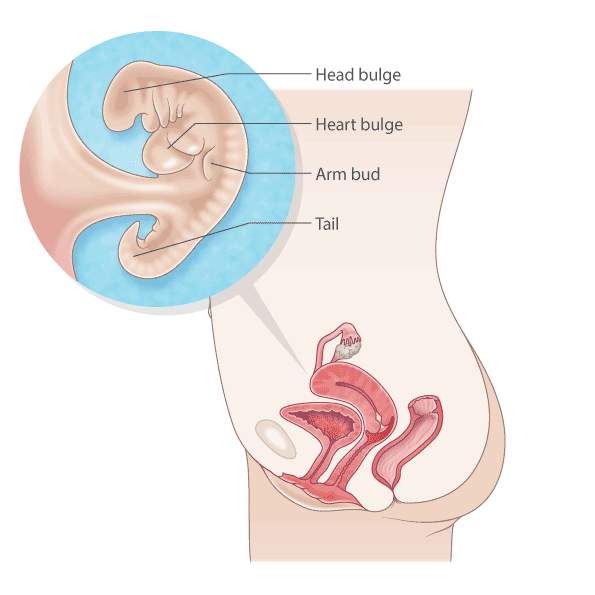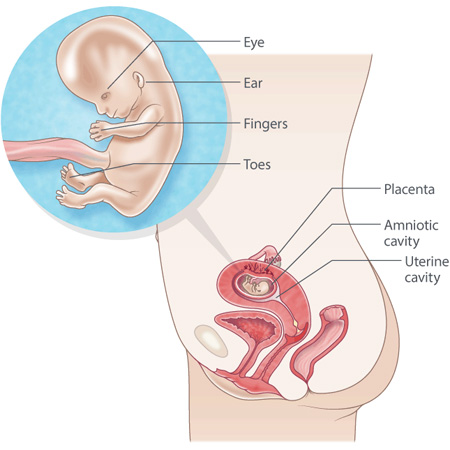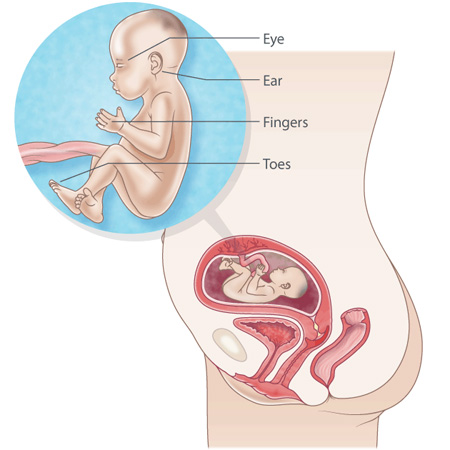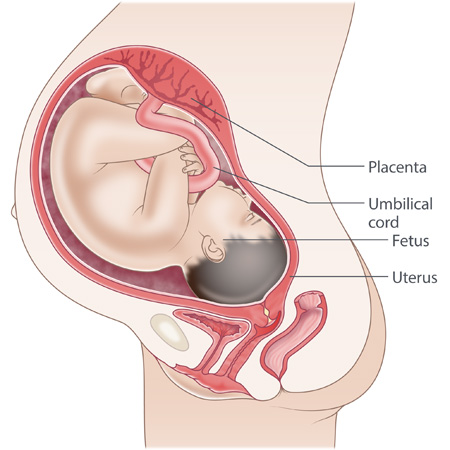Pregnancy
- Introduction
- Preparing for Pregnancy
- Finding Out You are Pregnant
- First Trimester
- Second Trimester
- Third Trimester
- Pregnancy Support and Education
- Care During Pregnancy
- Helplines / Useful Information
Right to Respectful Maternity Care

- The midwife and any other medical staff who are present should talk with you throughout your labour and birth.
- If you are unsure of anything that is happening to you, you have a right to ask them to stop and explain what is happening.
- You also have a right to say no to care or to ask for more information before saying yes to any procedure or intervention. This is called informed consent.
- You have a right to an interpreter during your birth and to request that the interpreter be a woman, if possible.
Respectful Maternity Care Charter
Video: Respectful Maternity Care
- You have the right to decide when to get pregnant.
- It is important to think about this before you decide when and if you want to have children.
- If you do wish to become pregnant your health is important, so make sure your body is getting the nutrients it needs to sustain a healthy pregnancy.
- If you do not wish to become pregnant it is important to know your options regarding birth control and unplanned pregnancy.
Raising Children Network – Multilingual Services
Models of Maternity Care
There are many different types of antenatal care and birth options in Australia.
This may depend on your finances, location, health history and what kind of experience you want to have.
This video can help you learn more about Maternity Care in Australia.
Information for this page sourced from White Ribbon Alliance, Raising Children Network, World Health Organization, Parentline, Australian Breastfeeding Association, TIS National, PANDA, Pregnancy Birth Baby, The Women’s Hospital, Mothersafe, SANDS, Birth for Humankind, Health Direct and Department of Health and Ageing
Preparing for Pregnancy

Some women may get pregnant easily, others may take a long time. Up to one in five pregnancies will end in miscarriage. This is not something you should feel ashamed of but it can be a sad experience for you and your family. Grief is different for everyone and it’s OK to as for help if you are having trouble coping with your feelings and emotions after a miscarriage. SANDS is an independent organisation that provides support for newborn death, stillbirth and miscarriage. You can call them on 1300 072 637. You can learn about pregnancy loss in more detail in Shifra’s Complications in Pregnancy section and here
Maintaining a healthy diet and exercise can help you get and stay pregnant. Before, during and after pregnancy you may need to avoid certain foods that could make you sick and it is important to increase your healthy food intake. This includes increasing your vitamin and nutrients intake 3 months or more before becoming pregnant.
Your body mass index (BMI) can help you identify if you are underweight, healthy weight, overweight, or obese. Achieving and maintaining a healthy weight for your body type will improve your chances of having a normal pregnancy and birth.
All women should take Folic Acid in the lead up to their pregnancy. This helps reduce the chance your baby will develop spina bifida which is a problem with the baby’s spine that happens in early pregnancy. You may also need to take Vitamin D and Iron supplements.
Some medications as well as drugs and alcohol can affect your ability to get pregnant or maintain a healthy pregnancy. Talk to your doctor to discuss if you use any of these. Mothersafe is also a helpful service that can discuss any of the following with you:
- Prescription drugs
- Over-the-counter medications
- Street drugs
- Infections
- Radiation
- Occupational exposures
You can call them on 02 9382 6539 if you are in Sydney or 1800 647 848 if you are in a non-metropolitan area.
You can speak to your doctor, Maternal Child Health Nurse or community midwife for more information on how to take care of yourself before you get pregnant. This is known as pre-conception care.
Your doctor and nurse are there to help you, not to judge you. You have a right to see a different doctor, nurse or midwife if you don’t feel safe or comfortable with the one you have now.

Image courtesy of: Australian Guide to Healthy Eating
The Raising Children Network also has information in other languages that can help you and your family stay happy and healthy.
Finding Out You are Pregnant

- Most women discover they are pregnancy after they have missed their period (monthly bleed).
- Some women take a home pregnancy test and then confirm their gestation (how many weeks along they are) with a blood test and an ultrasound with their local doctor.
- Normal pregnancies last around 40 weeks and most babies are born between 38-42 weeks.
First Trimester
- The first trimester of your pregnancy are the first three months (12 weeks).
- You may have some uncomfortable symptoms like nausea (feeling sick), vomiting, and tiredness due to changes in your hormones and increased blood circulation.
- You should see your doctor if you cannot keep down food or fluids or if you are feeling very tired/thirsty.

6 weeks pregnant

12 weeks pregnant
Images courtesy: https://raisingchildren.net.au/pregnancy/week-by-week
Learn more here:
Second Trimester
- The second trimester of pregnancy are weeks 13 to 26.
- During this time, most symptoms from the first trimester may get better.
- You will also begin to develop a bump as the baby and uterus (womb) grow upward into your tummy.
- Towards the end of the second trimester, you will also start feeling your baby’s movements.
- Every baby moves differently, but you can expect to feel regular movements every day. These movements will get stronger as the baby gets bigger.
- If you feel less movements at some point or are worried, speak to your midwife or obstetrician.

Image courtesy: https://raisingchildren.net.au/pregnancy/week-by-week
Learn more here:
Third Trimester
- The third trimester of pregnancy starts at week 27 and continues till birth.
- During this trimester, it is normal to be uncomfortable due to the extra weight of your baby. You may have difficulty in sleeping. Sleeping on your left side helps you and your baby’s blood and oxygen flow

Image courtesy: https://raisingchildren.net.au/pregnancy/week-by-week
Learn more here:
Pregnancy Support and Education
You have a right to have a support person with you when you see your doctor during your pregnancy. This can be your partner, a family member or friend, or a trained birth companion known as a doula (this is different from a midwife). Professional doulas charge fees for their service. There are different websites that list doulas in your area.
In Victoria, Birth for Humankind offers a free doula service for women with financial difficulties who meet at least one of the following criteria:
- Are at risk of perinatal depression and anxiety
- Are under 25 years old
- Currently experiencing or are at risk of homelessness
- Are a refugee, asylum seeker or newly arrived migrant (within 5 years)
- Have a history of mental illness, drug and alcohol misuse, trauma or abuse issues
- Are Aboriginal or Torres Strait Islander
- Do not have a birth support person
Birth for Humankind offers parenting classes for women under 25 years old. They also offer classes on Navigating the Maternal Health Care System for refugees, new migrants and other non-English speaking communities. You can make a referral for yourself or someone else by visiting Birth for Humankind.
As you get closer to your due date, you should be offered the opportunity to go to birthing and parenting classes to help you prepare childbirth and care for your new baby. If you can’t afford these classes or don’t feel comfortable attending for any reason, ask your midwife or social worker for help.
There are other services that offer free classes and support. New to the Tribe offers pregnancy and parenting classes for parents who can afford them and for every two programs purchased, they provide one program for free to someone who cannot afford them.
The Raising Children Network also has information in other languages that can help you and your family stay happy and healthy.
Care During Pregnancy

Pregnancy can be both an exciting and stressful time for a woman and her family.
Understanding what to expect helps reduce the worry and fear you may feel about childbirth and becoming a parent. If feelings of sadness or depression are affecting your daily life or not letting you enjoy your pregnancy, you should discuss this with your doctor or call PANDA on 1300 726 306.
It is also important to see your doctor or midwife regularly. They can check on your health and your baby’s, and get you more help if you need it.
You should feel safe, respected and comfortable with all your pregnancy care specialists. It’s OK to ask for a different doctor or midwife if you don’t feel comfortable or safe with the one you’ve chosen or who has been assigned to you. You have a right to respectful maternity care.
Specialist doctors and midwives can become a part of the team if you develop any problems.
Below is an outline of the antenatal care appointments that take place during your pregnancy.
Useful Links
- Respectful Maternity Care Charter
- Video: Respectful Maternity Care
- Raising Children Network – Multilingual Services
Preparing for Pregnancy
- Preparing for pregnancy
- Preconception care
- Fertility treatments
- Access fertility fact-sheets
- Weight and fertility
- Calculate your BMI
- Healthy pregnancy for women who are overweight (Raising Children Network)
- Healthy eating for pregnancy: in pictures (Raising Children Network)
- Nutrition and Lifestyle Articles (Raising Children Network)
- Alcohol and pregnancy: in pictures (Raising Children Network)
- Smoking and Pregnancy (Raising Children Network)
- Vitamin D (Raising Children Network)
- Iodine (Raising Children Network)
- Vitamins and Minerals (Raising Children Network)
- Neural tube defects (Raising Children Network)
- Alcohol and pregnancy (Raising Children Network)
- Smoking and pregnancy (Raising Children Network)
First Trimester
Second Trimester
Third Trimester
Last reviewed: Jun 2022
